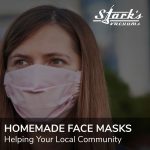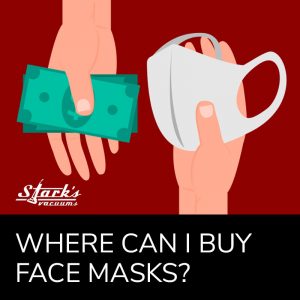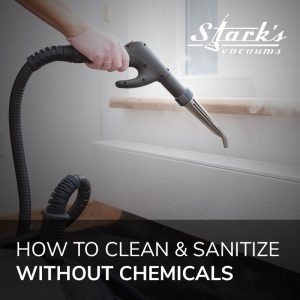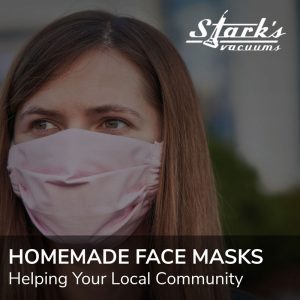Is the coronavirus airborne or is it spread only from person-to-person contact? Are masks necessary? Are homemade masks a good alternative since there is a shortage of commercial surgical masks? Those are all important questions that we will attempt to answer in this article.
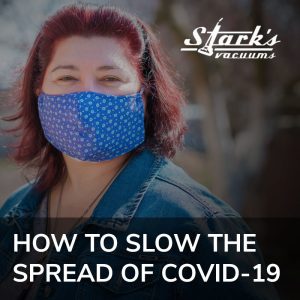 What We Know About COVID-19
What We Know About COVID-19
The Center for Disease Control (CDC) notes that COVID-19 is a new illness, so experts are still trying to determine all the ways that it is spread. They do say on the CDC website that:
The virus is thought to spread mainly from person-to-person.
- Between people who are in close contact with one another (within about 6 feet).
- Through respiratory droplets produced when an infected person coughs or sneezes.
These droplets can land in the mouths or noses of people who are nearby or possibly be inhaled into the lungs.
So, at the very least we know that having a mask can prevent respiratory droplets from possibly being inhaled into the lungs and spreading infection.
Is wearing a mask a guarantee that you will not get the virus? No, viruses can also transmit through eyes and some tiny particles can penetrate facemasks but overall, some protection is better than none.
In other cultures, it is common for people to wear surgical masks, especially during cold, flu, and allergy season. Wearing surgical masks in countries like Japan is something that is done regularly when people go out in public, and not just during a pandemic.
Should You Wear a Mask to Prevent COVID-19?
You, like many of us may have encountered a slew of mixed messages on this topic. It is noted that US Surgeon General Jerome Adams tweeted only a few weeks ago,
“Seriously people- STOP BUYING MASKS! They are NOT effective in preventing general public from catching #Coronavirus, but if healthcare providers can’t get them to care for sick patients, it puts them and our community at risk,” Adams tweeted on Feb. 29.
However, after strongly advising against wearing masks, it appears Jerome Adams has softened on his strong stance against wearing surgical masks. As CNBC reports, In a U-Turn, the US Surgeon General asks CDC to See if Face Masks Can Prevent Coronavirus Spread Afterall, he said that his comments were based on the best evidence he had at the time but it has become evident that there is a “significant amount of asymptomatic spread.” This means wearing masks, in addition to social distancing and handwashing, could help slow the spread of the virus.
The World Health Organization (WHO) is also reassessing its policy on masks based on new evidence out of Hong Kong, which as of this writing has not yet been released to the public.
Let’s be clear, facemasks are not a replacement for respirators, but they are important and can hinder droplets from being passed on from one person to another. When used in combination with other preventative measures (handwashing, keeping at least 6ft apart, avoid touching your face, etc.) it is another critical layer of protection.
In a recent article from The Guardian, Can a Facemask Protect Me from the Coronavirus COVID-19 Myths Busted, they state:
“If you are likely to be in close contact with someone infected, a mask cuts the chance of the disease being passed on. If you’re showing symptoms of coronavirus, or have been diagnosed, wearing a mask can also protect others. So, masks are crucial for health and social care workers looking after patients and are also recommended for family members who need to care for someone who is ill – ideally both the patient and carer should have a mask.”
Perhaps, the messaging of whether to wear a mask or not, has come from the shortage of surgical masks. If people thought they didn’t need them, and the masks didn’t do any good, would that get people to stop buying up the supply?
This well-intentioned, yet misguided effort should have focused instead on how to make masks out of other materials like HEPA vacuum bags, which in a study performed at Cambridge University during the H1N1 flu pandemic, concluded that the vacuum bags were one of the top materials to use as a DIY surgical mask and 95% effective.
Making Your Own Homemade Face Masks
Homemade surgical masks are easy to make and they do not deplete the supply that is necessary for healthcare workers. When made with the right materials, like vacuum bags, they are nearly as effective as commercial masks.
There are hundreds of tutorials on YouTube, including this one from Dr. Ryan Southworth, an Emergency doctor, who discusses how effective masks made with HEPA vacuum bags are and it includes a tutorial on how to make them. A Doctor Explains How to Make the Safest Face Masks
Also, Jennifer Tessmer-Tuck, MD and VP of Medical Affairs at North Memorial Health Hospital shows How to Make a Healthcare Mask with Special Filter Pocket.
There are many more tutorials from other medical professionals as well.
The answer is clear; masks can save lives. So, keep making them, keep donating them, keep wearing them, and stay safe!

